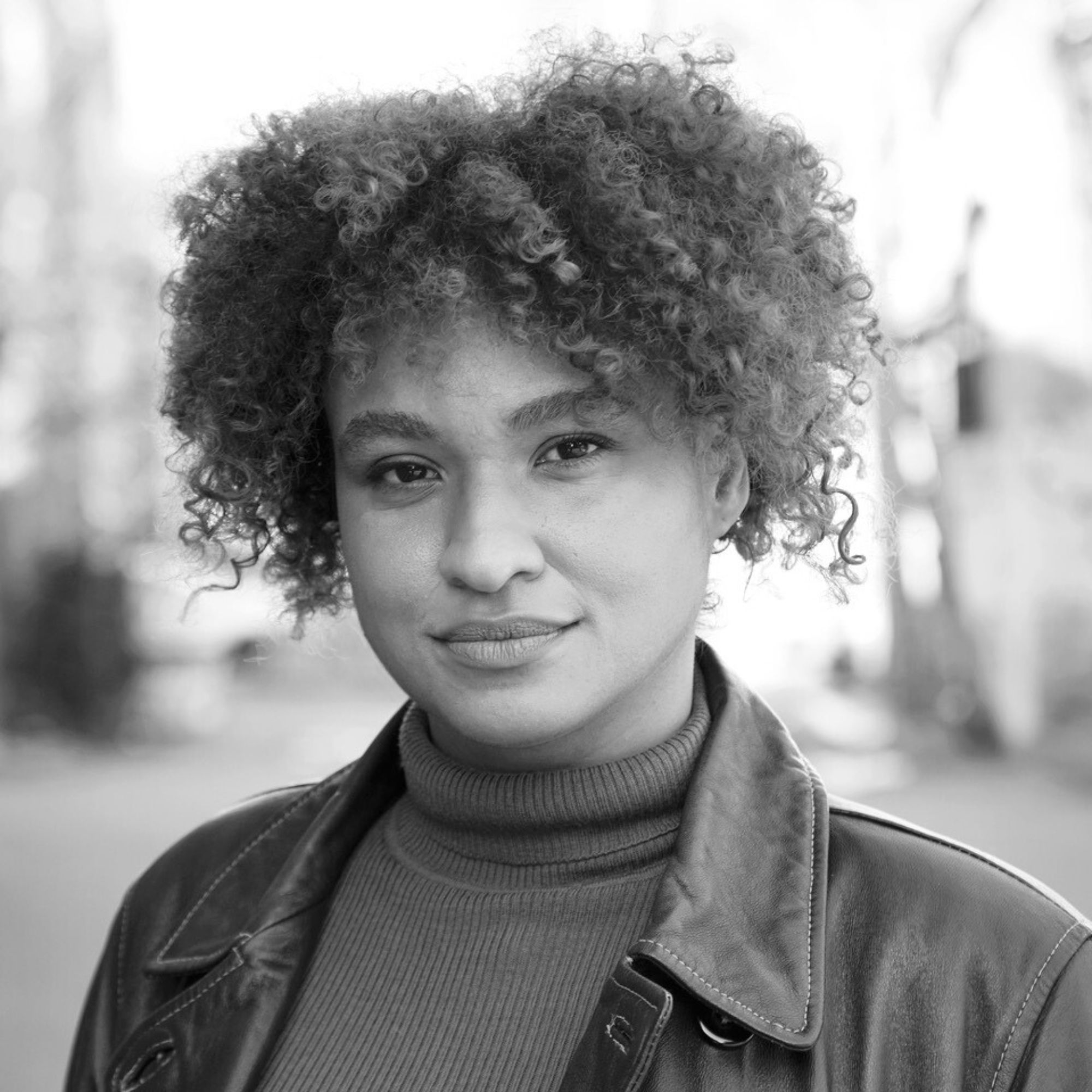
11 Apr Nakitta Hannah
April’s #MainArtist, Nakitta Hannah shares her personal journey and story, inviting us to cross her point of view and embody change in the stories we wish to see, hear and experience on screen.
In addition to her contribution to the #MainArtist forum, Nakitta joins the Main Film team as part of the Conseil des Arts de Montréal’s DémART program, during which she will develop her next documentary!
- I Came To Give Us Life, Documentary, 30 min, Canada and Brazil, Working In Progress
- Dear Customers, Documentary, 9.58 min, Zaza Productions, Canada, 2022
- How do You Wash It?, Video installation, loop. Canada, 2019
❝ When Main Film extended the opportunity for me to address discrimination, I delved into how I could meaningfully contribute to the ongoing discourse and themes already explored by many artists I deeply admire. Ultimately, I realized that sharing fragments of my personal journey would resonate most powerfully. As a Black woman originating from Brazil, I offer perspectives on blackness that often escape notice in Canada, where conversations about black lives predominantly revolve around North America. This holds even in Brazil, home to the largest black population outside of Africa. There’s much to uncover about Brazil’s history of slavery and its ongoing effects in talks about decolonization in the present time.
My family’s history began when my mother, originally from Boqueirão in Northeast Brazil, moved to Rio de Janeiro in 1978, following her first husband, who had left without her knowledge. Her arrival coincided with governmental modernization strategies to transform the Southeast into the country’s industrial hub, drawing people like my mother to seek better opportunities from the arid Northeast. Many migrated to cities like Rio de Janeiro and São Paulo.Upon my mother’s arrival in Rio at the age of twenty-two, carrying my soon-to-be sibling, she sought refuge in Vidigal, where her sister-in-law and other Northeasterners had settled. My mother lived in a wooden house without piped water, electricity, or even a bathroom for my older sisters. Favelas like Vidigal lacked basic infrastructure, and the government paid little attention to them. Favelas in Brazil first arose after the termination of slavery, which failed to ensure their prosperity in the new socioeconomic and political landscape. This gave rise to a marginalized class grappling with elevated unemployment rates and restricted access to housing. Individuals without means migrated to unoccupied lands, predominantly city hillsides, where they erected favelas. Over time, permanent constructions replaced squatter settlements, but favela residents are still considered second-class citizens. Following my mother’s divorce, she encountered my father, a native of Rio and a descendant of the enslaved Black population. Their story led to my birth in 1991 amidst Brazil’s transition to a fragile democracy. Born in the vibrant tapestry of Brazil, my early years were steeped in the rich hues of culture and community yet overshadowed by the omnipresent spectre of racism and discrimination. Militarized police units like BOPE, fashioned after the American SWAT, exacerbated the situation, disseminating violence and perpetrating unjust killings under the guise of the war against drugs. Despite the adversities, education emerged as my guiding light, offering a route to liberation and hope for generational poverty. Affirmation action initiatives such as free public schooling and scholarships paved the path for me to become the first member of my family to attain a degree and even travel abroad. I carried with me the hopes and dreams of generations past—a testament to the transformative power of education in breaking the chains of intergenerational poverty and marginalization. Echoing my mother’s trajectory, I pursued superior opportunities elsewhere. This propelled me to Montreal, where I enrolled in Concordia University’s MFA program.
Following nearly seven years in Montreal, during which I fulfilled various requirements to adapt to this new society and navigated a challenging process to obtain my permanent residency, I was granted my first government funding to pursue my film projects. This funding originates from démART-Mtl and Vivacité, programs specifically tailored for culturally diverse immigrant artists. Through these programs, I will have the opportunity to collaborate with Main Film, embark on the search for a new documentary in the coming months, and ultimately complete a film I have been working on for five years. As a writer and director, I aim to challenge narrow narratives and amplify voices like mine, recognizing that our stories merit being heard, celebrated, and honoured. This journey signifies not the happy ending touted by meritocracy but rather the long-awaited commencement I have tirelessly strived for. In this pursuit of expanded representation, I derive solace from the potency of collective voices and the conviction that our narratives can inspire change. ❞
Nakitta Hannah
#MAINARTIST
Our organization is an artist-run center committed to supporting its community as a whole, without distinction.
Beyond the simple declarations of solidarity against racism following the events of the summer of 2020, but also against more recent racist acts and those that persist historically, it seemed essential to us to offer a place to our members so that they can express their feelings in the face of the discrimination they experience and which could be based on the color of their skin, their origins, their sexual orientation, their gender or a handicap.
We invite them to share their thoughts on this societal drama that constitutes all forms of rejection of the other.
Main Film is an artist-run center committed to supporting its community as a whole, without distinction, in the creation of independent film.
Our 24th contributing artist is Nakitta Hannah.
#MainArtist #ArtisteImportant
Because it is artists who carry both the role of representing society and making it evolve.


